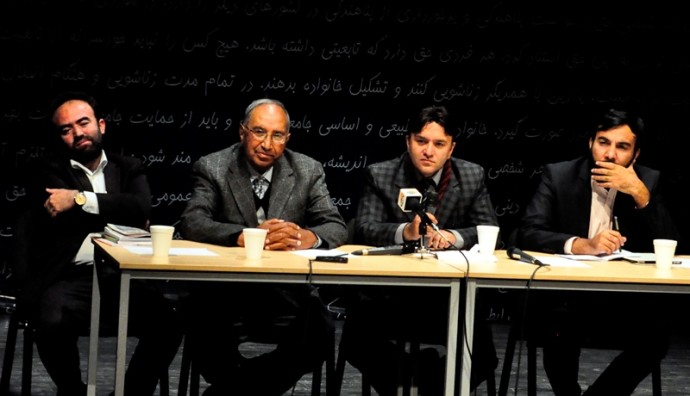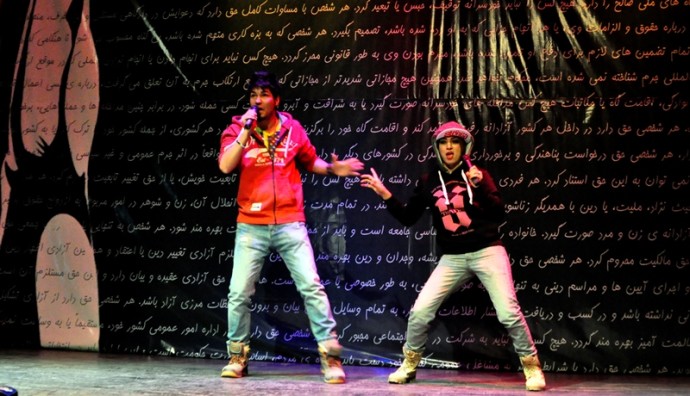On December 9th 2013, the third day of celebration Week for Human Rights Day, Armanshahr Foundation and the Institut français d’Afghanistan (IFA) in Kabul jointly held a round table on ‘the Fight against Corruption and its impact on respect for Human Rights’. The panel brought together Azizullah Ludin, Head of the High Office of Oversight and Anti-corruption, Shiwa Sharq, Political analyst, Parliamentarian Jafar Mahdavi, Member of Parliamentary Committee on International Relations, Khan Zaman Amarkhil, Deputy Director of Afghan Anti-Corruption Network and Hamid Razzagh, Armanshahr researcher specialized in corruption, who headed the session.

In his opening remarks, Mr. Razzagh reflected upon different definitions of corruption. Consequently, he passed the torch to Mr. Ludin and asked him to speak about the administrative structures and their impact on growth and decline of corruption.
Referring to the history of corruption in Afghanistan, Mr. Ludin said: “One of the most important reasons for the incidence and persistence of corruption is the increasing number of public offices. Currently, Afghanistan is facing a multitude of parallel administrative offices. Without any public contribution or plan, these offices waste millions of dollars. History shows that before the rise of communism in Afghanistan, Afghanistan was one of the least corrupt countries in the region. But now, Afghanistan is one of the most corrupt countries in the world. Due to frequent wars, the administrative structure of Afghanistan has been destroyed. In the past forty years, no government has managed to reform the administrative structure. To eradicate corruption, strong, wide, top-down, and bottom-up policies are needed”.
The second panelist, Mr. Shiwa Sharq spoke on the relation between Human Rights and corruption. Mr. Shiwa Sharq said: “Let one thing be known from the outset that in Afghanistan, from the anti-corruption bureau to the presidency , all are law-breaking and contributing to corruption. In one year, six billion dollars have been lost in this country. I define corruption in terms of legitimacy. For, it is the presence or absence of legitimacy that determines the corruptness of a committed act. This also applies to Human Rights. Anyone who in a political, economic, social or cultural sense serves his or her own interest and jeopardizes the interest of others, has acted in violation to Human Rights and has committed corruption”.
The next panelist, Mr. Amarkhil said: “Corruption on the long run has its effects on the lives of human beings and their rights. But one cannot state that every form of corruption is in violation of Human Rights. For example, if one is bribing a judge in the court to pass a different judgment, there is a direct violation of Human Rights, but corruption of border tax, cannot be termed as a Human Rights’ violation. No doubt, there is a high level of corruption in public offices in Afghanistan, but we are all accountable for it”.

The first part of the program ended with a Q&A where the panelists responded to questions raised by the audience. On the second half of the program, there was a musical rap performance by FM Band.

